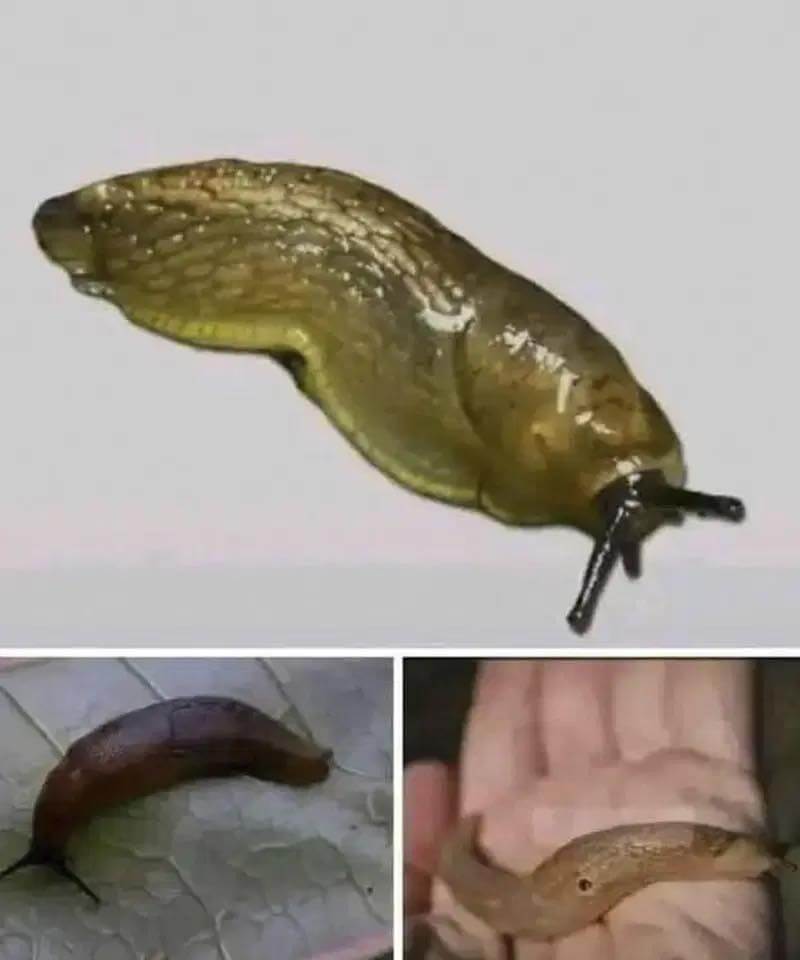Most people see slugs as unpleasant, slimy pests that crawl around after it rains or hide in shady garden corners. But what many don’t realize is that these humble creatures play a critical role in maintaining ecological balance—and even have surprising applications in medicine, beauty, and neuroscience. While their appearance might not be charming, their contributions to nature and human science are far more valuable than most would expect.
The Underrated Role of Slugs in the Ecosystem
Slugs are silent workers in the process of natural recycling. They feed on dead leaves, fungi, and decaying plant matter, accelerating decomposition and returning nutrients back into the soil. This natural composting helps enrich the ground, making it more fertile and ideal for growing crops and garden plants. Without slugs, the nutrient cycle in many natural environments would slow down significantly, negatively impacting soil health and plant life.
In addition to recycling organic waste, slugs serve an important function in the food chain. They’re a key food source for birds, toads, frogs, beetles, and even hedgehogs. Despite their unassuming appearance, slugs contribute to a healthy balance in your garden’s micro-ecosystem. If a slug appears in your yard, it’s often a sign that your soil is rich in organic matter and your garden is part of a thriving natural system.
Slug Mucus: From Garden Pest to Skincare Powerhouse
Perhaps the most surprising quality of slugs is found in their slime. That sticky trail they leave behind is rich in bioactive compounds with proven regenerative, antibacterial, and anti-inflammatory properties. Medical researchers are now studying slug mucus as a natural substance that could help accelerate wound healing, promote skin repair, and combat infection without synthetic chemicals.
What’s more, slug mucus contains ingredients similar to those found in snail slime, such as hyaluronic acid and antioxidants—compounds highly sought after in the skincare industry. These naturally occurring elements have made slugs a subject of growing interest in the formulation of moisturizers, anti-aging serums, and organic skincare products.
A Simple Creature Helping Unlock the Secrets of the Brain
The significance of slugs doesn’t stop at the garden or skincare aisle. In scientific research, slugs—particularly their close relatives, sea slugs—have become important models for neuroscience. Their basic but well-structured nervous systems help scientists study memory formation and learning processes. Understanding how slugs process information has led to breakthroughs in our knowledge of the human brain and neurological conditions.
The Bigger Picture: Why Slugs Deserve Respect
Although slugs are often seen as nothing more than nuisances, their role in our environment is anything but minor. They clean and fertilize the soil, contribute to the food web, support biodiversity, and offer insights that can enhance both human health and science. If one wanders into your yard or garden, it’s not just a coincidence—it’s a small reminder of the interconnected systems that keep nature, and even our own bodies, in balance.
Final Thought: Everything in Nature Has a Purpose
Slugs may never become garden favorites, but their presence is a sign of natural richness and biological balance. From helping plants grow better to offering potential breakthroughs in skincare and medical research, slugs are more than meets the eye. The next time you spot one outside your home, consider it a quiet symbol of nature’s intelligence—and a gentle reminder that even the smallest creatures have a place and purpose in the world.
